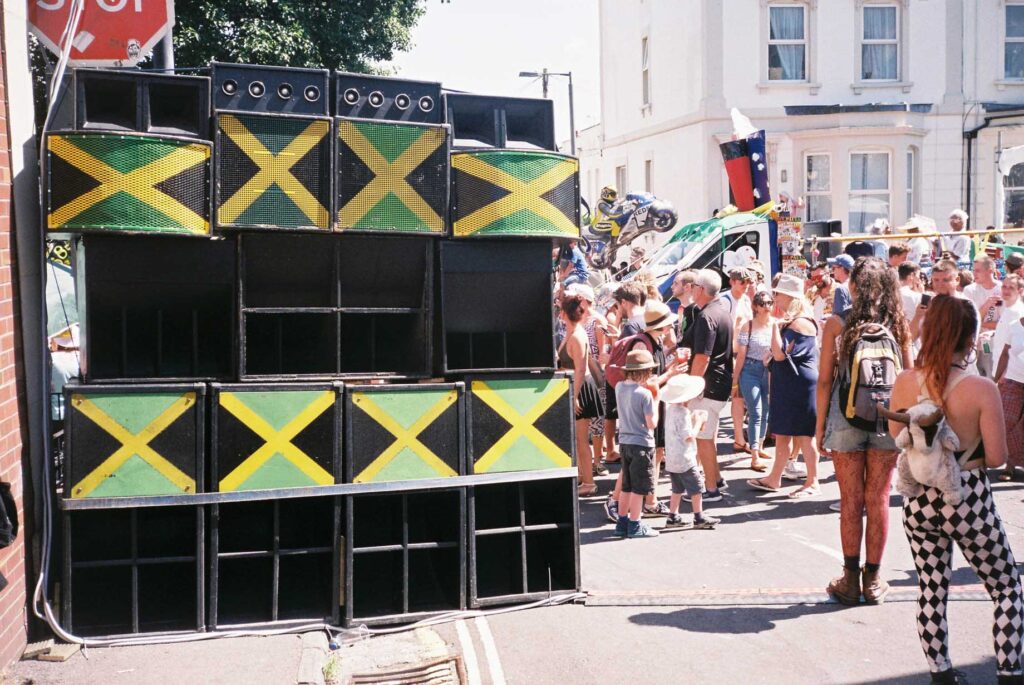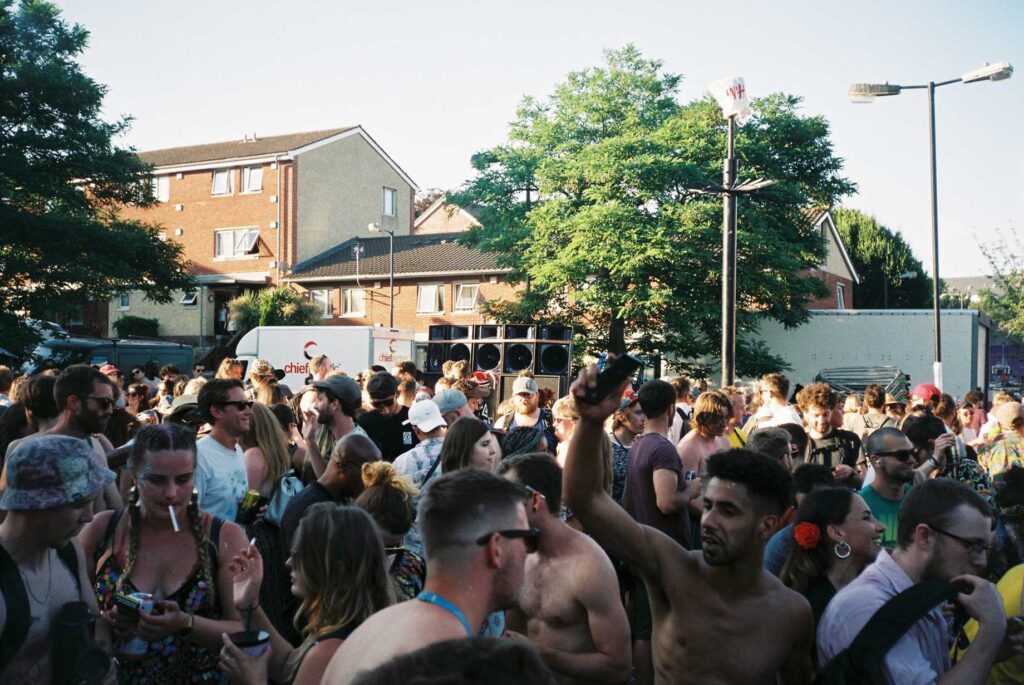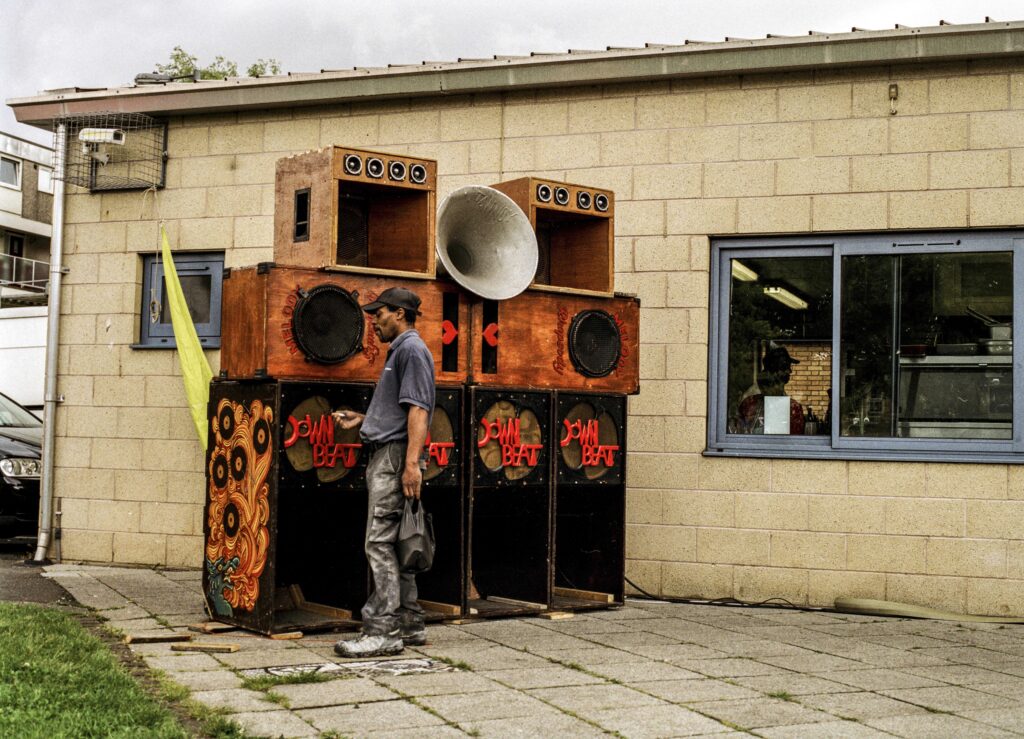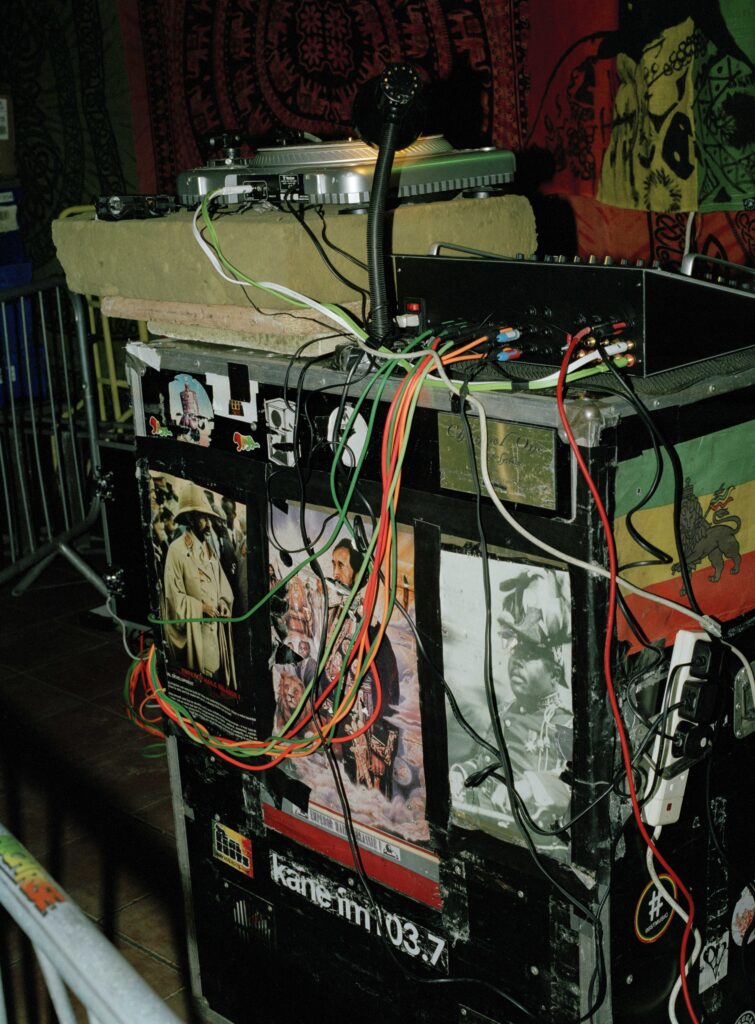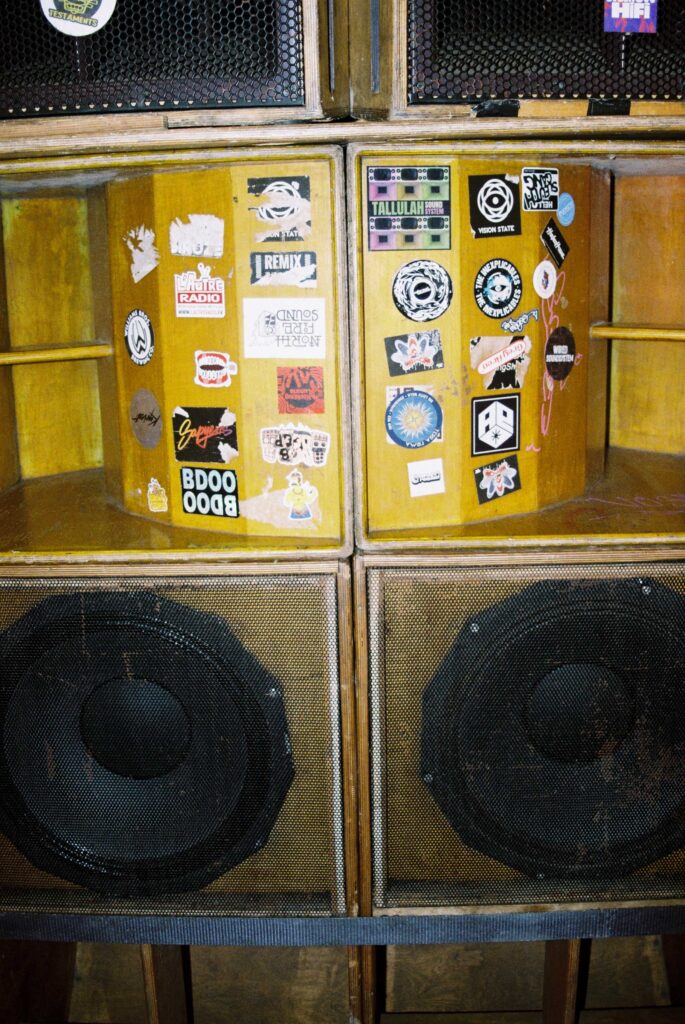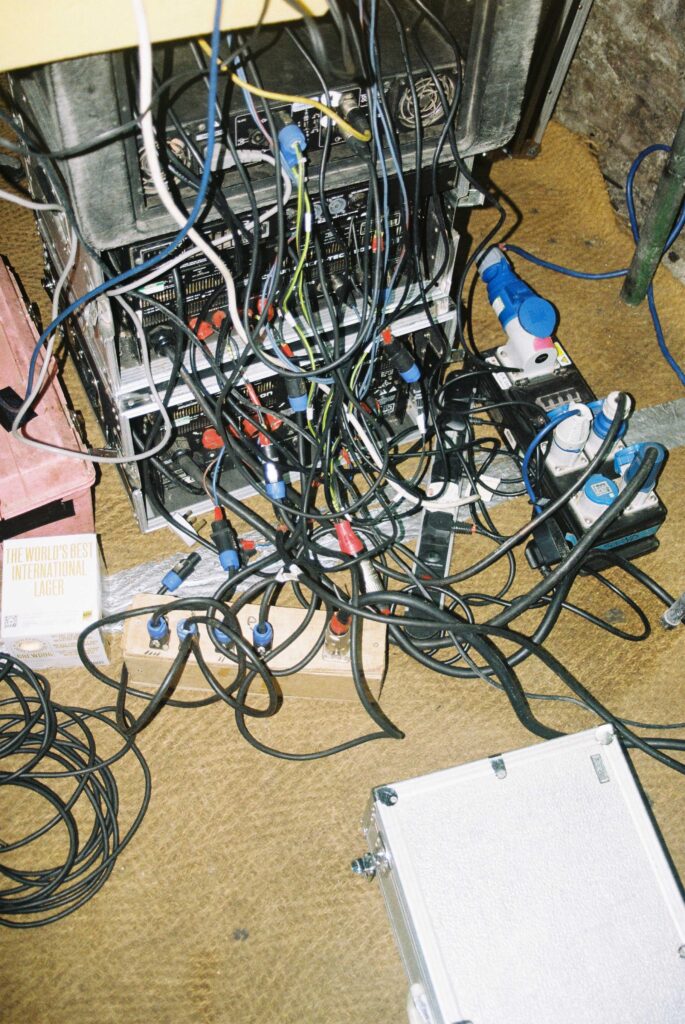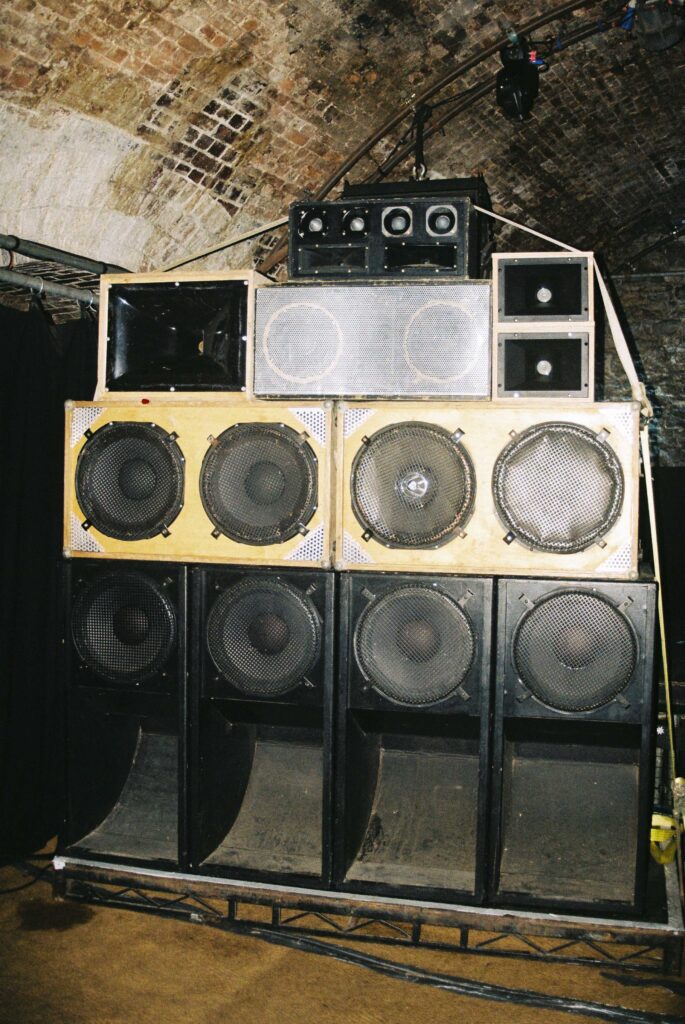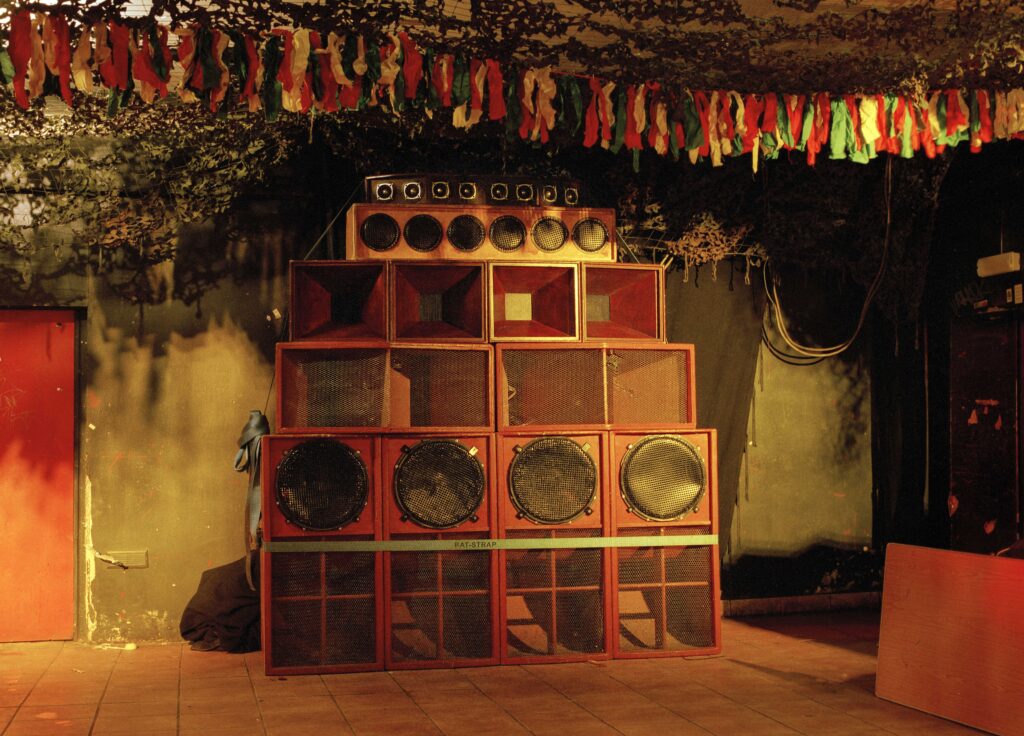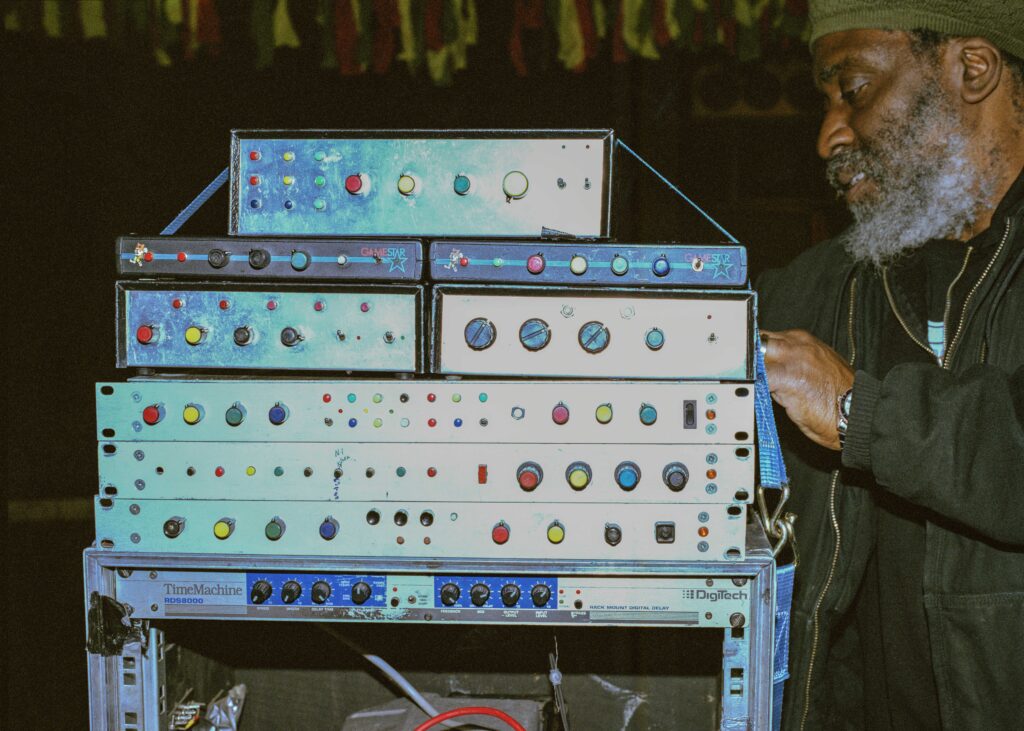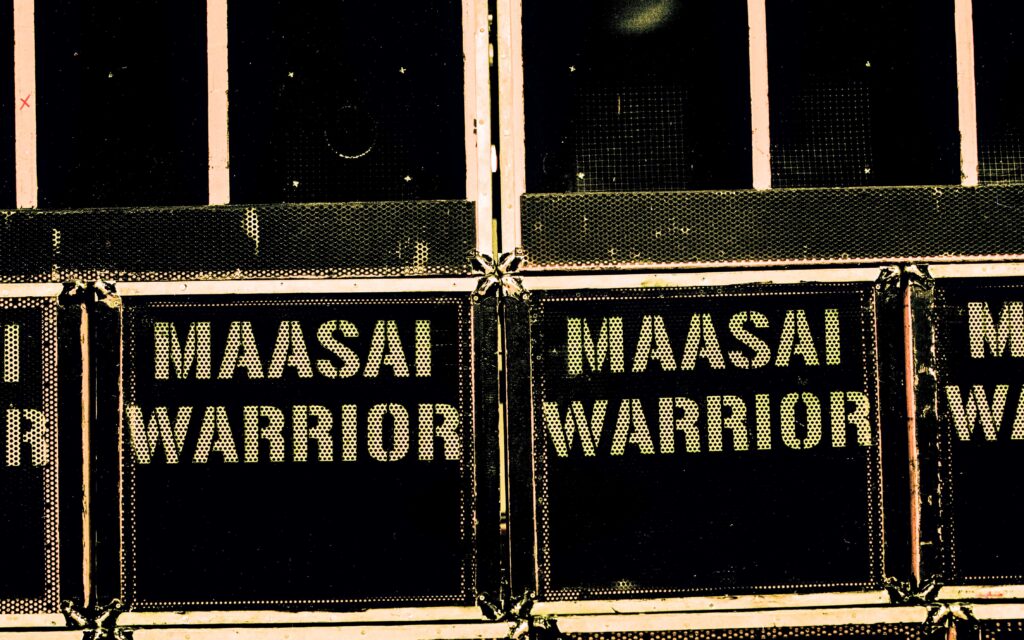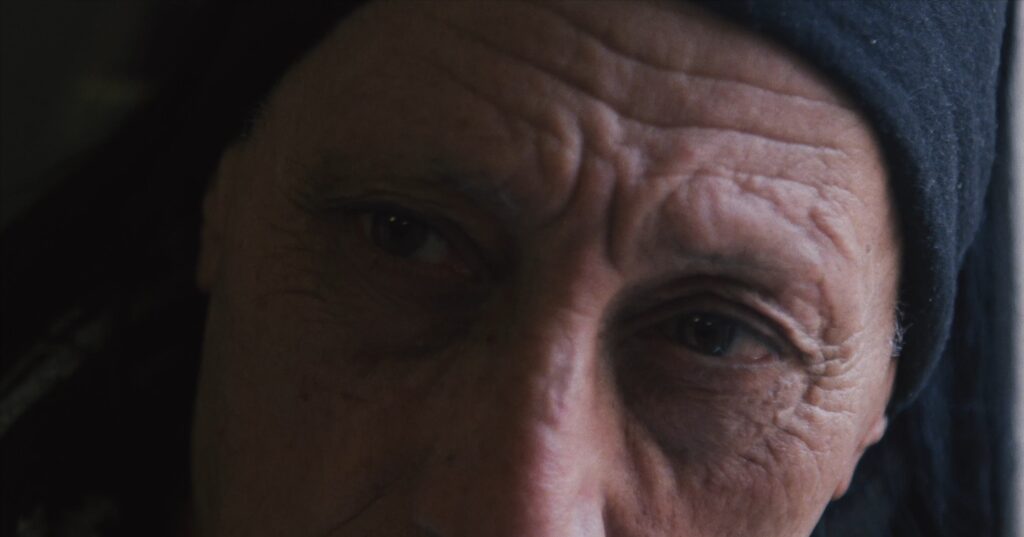From the roots of Jamaican sound systems in Bristol and the St Pauls Carnival, blending reggae and dub, to the evolution of drum & bass, dubstep, and hip-hop
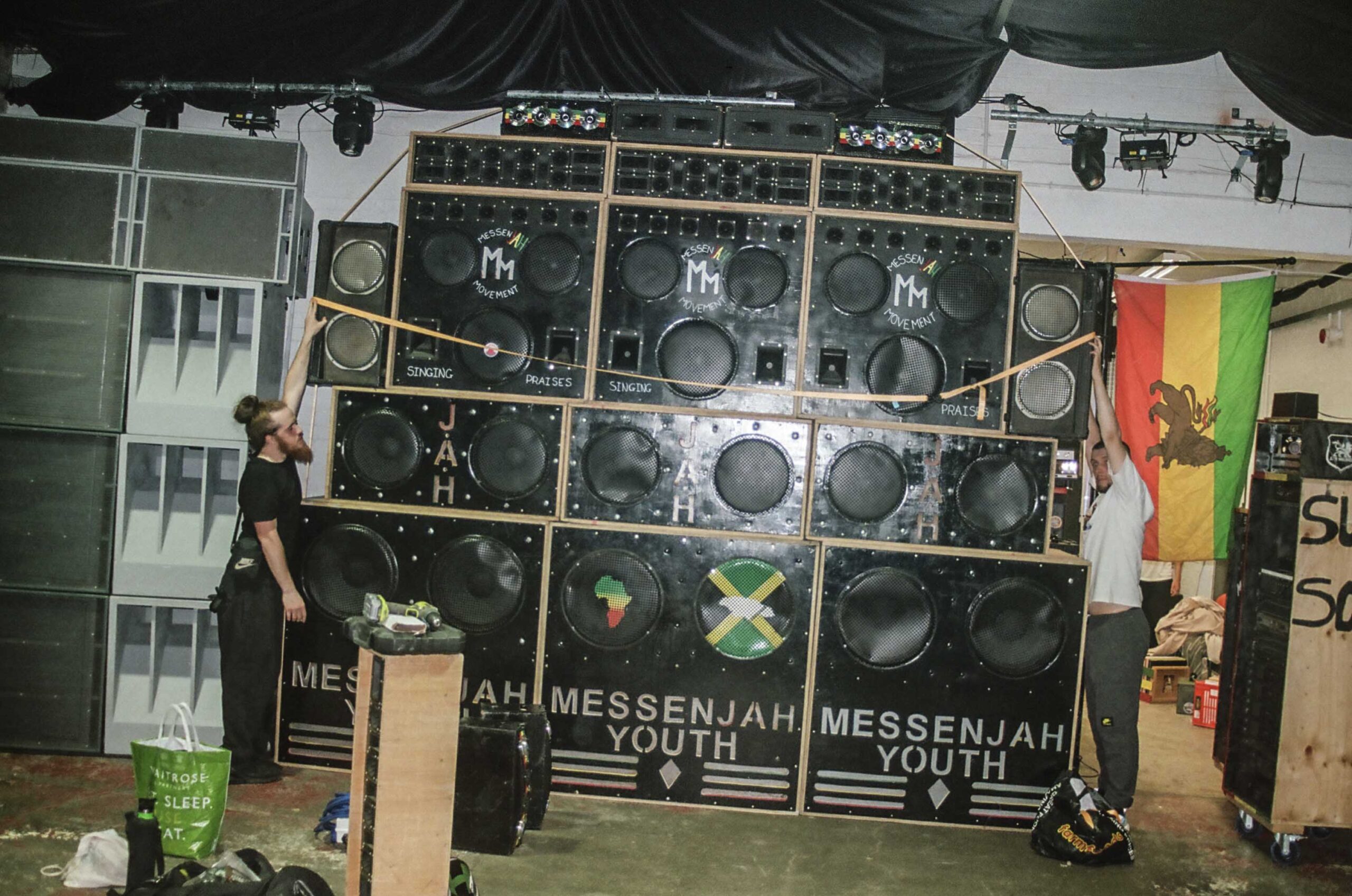
The sonic legacy of the Caribbean diasporic community through sound system culture: seventy years of city history shaped by low frequencies, improvised clubs, blues dances, and constant genre blending.
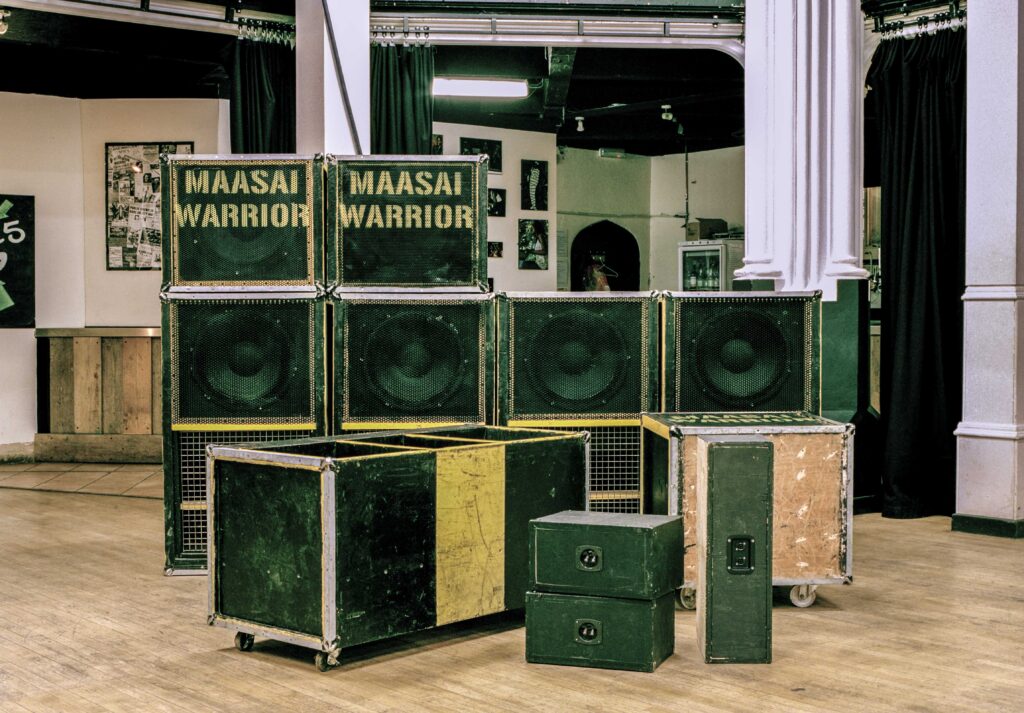
It's hard to imagine a more fitting setting than Bristol's Trinity Centre for a soundsystem experience —a high-ceilinged, functional room in the heart of a 19th Century church with dark corners and ample room to dance. When a Teachings In Dub event is in session, the rig is stacked high, usually split across the room to create a truly immersive experience led by low-end powerful enough to rearrange every fibre of your being. Helmed by scene leaders Dubkasm, it's the quintessential community dance bringing together a broad crowd under the banner of authentic dub, roots and steppas in a continuation of Bristol's intrinsic love affair with soundsystem culture. It's an institution for the local music scene built on firm foundations laid by the first wave of West Indian migrants to settle in the city.
If you walk down City Road in St Paul's, a 15-minute walk from Trinity Centre, the entire side of one townhouse is covered in a mural dubbed Migration paying tribute to the Windrush Generation. It's a loving recognition of the 492 men, women and children who first crossed the Atlantic from the West Indies in 1948 under royal invitation to help rebuild Britain after the Second World War. The majority of those who arrived in Bristol settled in St Paul's, bringing with them their Caribbean culture, not least the food and the music.
By the late 1950s as many as 50,000 migrants were settling in Britain from the West Indies every year, rapidly forming diasporic communities lured by the promise of employment and a better life for their families. In a depressing continuation of Britain's exploitative colonial legacy, it was inequality and segregation that awaited them, and so these communities created their own self-contained worlds in which to express themselves and their culture.
“There weren't no big clubs, but the need for them was big,” Jah Vego told Lloyd Bradley in the seminal book Bass Culture, “which is why the sound-system business take off here like it did. I think people that had come to England was more receptive to a Jamaica-style dance than even they had been in Jamaica… here they look forward to them as one of the only parts of Jamaica they can still partake in.”
The first wave of the Windrush Generation brought mento and ska with them, naturally evolving into rocksteady, reggae and dub as the styles took hold back in Jamaica.
From just a couple of soundsystems in London in the 1950s the culture soon spread across the country to other towns and cities with significant Jamaican populations. Barred from high street clubs due to the simmering stew of racial tension, the new Black population in Britain instead found community halls, gymnasiums or houses to turn into makeshift clubs for the night. The houses—also known as shebeens or blues dances—could rage on all weekend in areas the police would often avoid.
In Bristol, The Bamboo Club opened in St Paul's in 1966 as a venue that catered to the earliest soundsystem culture in the city. Pioneers such as Tarzan The High Priest (grandfather to future Bristol legend Tricky), Count Ajax and Honey Bee made their first steps into hosting dances, and the blues dances sprung up around St Paul's and the neighbouring Easton district. What started modestly grew in strength and stature into the 1970s across venues like the Mayfair Suite, The Mill Youth Centre and The Inkerman, and even after The Bamboo Club burned down in 1977 there were already bigger spaces like Trinity and the Malcolm X Centre to house community dances.
The first wave of the Windrush Generation brought mento and ska with them, naturally evolving into rocksteady, reggae and dub as the styles took hold back in Jamaica. In tandem, when punk broke across Britain in the late 70s it was spearheaded by a disaffected youth who found kinship with the de facto rebel status of reggae as the music of an outcast community. The crossover between reggae, dub and punk fuelled unique musical outcomes in different parts of the UK, but it was especially potent in Bristol as bands like The Pop Group took the influence they were soaking up at legendary blues' like Ajax and funnelled it into their experimental twist on punk. Meanwhile, soundsystems like Enterprise Imperial Hi-Fi and Froggy's Excalibur rose to prominence through the 70s and 80s.
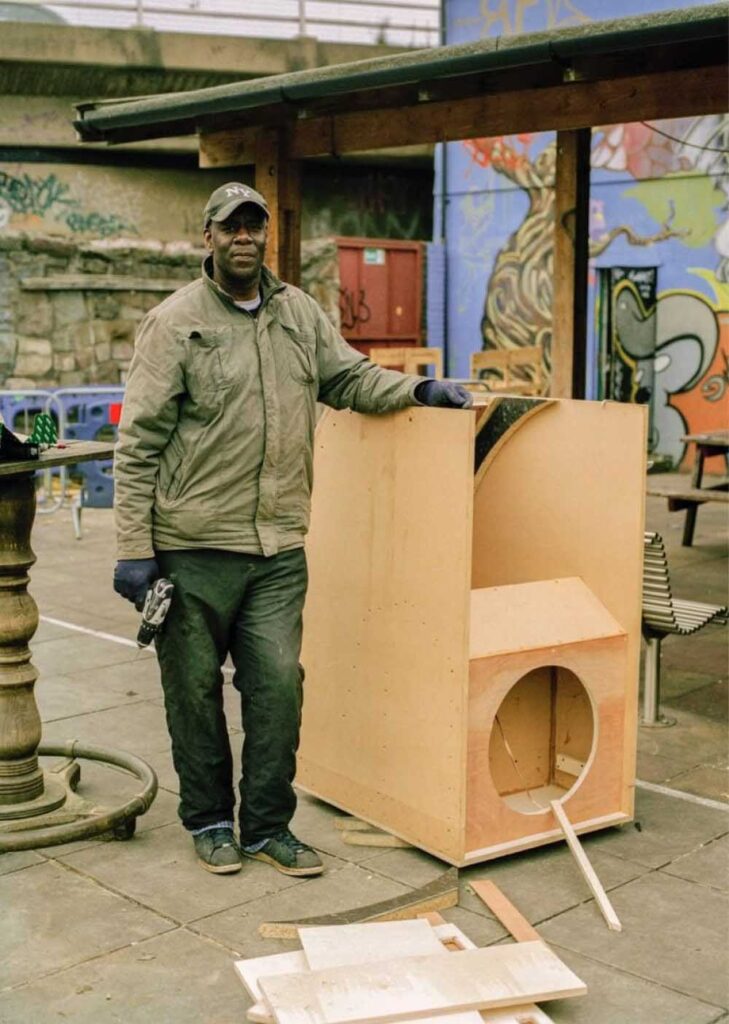
Bristol's instinct for cultural crossovers manifested in the soundsystems as well as the city's bands. While the traditional approach to roots music has endured through the ages, in the 80s there were great revolutions taking place not least thanks to the emergence of hip-hop in New York. As B-Boy culture made its way to Bristol, The Wild Bunch emerged as scene leaders taking their cues from their soundsystem forebears while joining the dots between funk, soul, hip-hop, dub, punk and electro. Milo Johnson, Nellee Hooper, Daddy G, Mushroom and 3D brought diverse influences into their sound, shattering the mould and pushing Bristol's party soundtrack in new directions alongside other crews such as 2Bad, FBI Crew, Smith & Mighty and Fresh 4. Taking part in sound clashes around the city and with the likes of Soul II Soul in London, their competitive spirit and collective endeavours drew from soundsystem culture and took it somewhere else entirely.
Throughout this era of change, one constant remained for Bristol's soundsystem culture —St Paul's Carnival. Founded in 1968, the event mirrored similar events in Notting Hill in London, Chapeltown in Leeds and Handsworth in Birmingham as the West Indian communities sought to celebrate and share their culture in a glorious day and night of festivities, soundtracked by soundsystems filling the streets with music. Throughout the years St Paul's Carnival has been a proving ground for the city's hopeful crews, with Froggy infamously giving the Wild Bunch one of their first breaks on his Excalibur system in the early 80s. The annual event also presented soundsystem culture to thousands from the city and beyond, exposing new devotees to the mysterious allure of pulsing sub bass in its most physical form.
If soundsystem culture was primarily a locally spirited endeavour in the 80s, as the decade turned it pushed certain artists to wider notoriety. Fresh 4 hit the Top 10 of the UK charts with their cover of Rose Royce's Wishing On A Star while the splintering of The Wild Bunch gave rise to Massive Attack. These strangely soulful DIY sounds caught on, helping pundits coin the dubious 'Bristol sound' tag ahead of the even more dubious 'trip hop' phenomenon of the mid-90s. The misfit sounds pushed by the likes of Tricky were rooted in soundsystem principles —spacious, moody and bass heavy, with the unique Bristol affinity for meshing unlikely styles into something thrillingly new and unpredictable.
In one room you could see Aba Shanti-I delivering a classic dub sermon on an ear-shattering sound while upstairs Pinch, Peverelist, Jakes and Joker were taking dubstep in wild new directions.
At the same time, another urgent form of soundsystem music was rushing into existence. The UK's bedded-in soundsystem culture had a big part to play in the development of UK techno and acid house in the late 80s, not least as DJs and producers sped up hip-hop breaks until breakbeat hardcore came through in the early 90s and mutated into jungle. This was music absolutely founded on the legacy of the soundsystem, with skeletal drums and crushing bass like any dub. In Bristol, the former Fresh 4 members Krust and Suv linked up with DJ Die and Roni Size to form Full Cycle, and a vital, non-conformist splinter of the jungle explosion was born. Meanwhile Krust's brother Flynn (also of Fresh 4) linked up with Flora to make their own distinctive strain of breakbeat, while Smith & Mighty pivoted to the More Rockers project to bring their own weight of experience to the booming scene.
Jungle and drum & bass became a permanent staple of Bristol's musical makeup, eventually finding its way into the more traditionally-minded musical landscape of the Carnival alongside purist systems like Jah Lokko and Negus Melody even as it took hold in clubs and festivals up and down the country. It was followed up in the early to mid-00s by the arrival of another sound custom built for soundsystems, steeped in the heritage of the UK's imported and assimilated music culture. Pinch was among the first in Bristol to pick up on dubstep, putting on Context nights well ahead of the curve and echoing the way jungle took on a distinct Bristolian twist when it hit the city.
As the Bristol dubstep scene in Bristol grew in a network of artists and labels, Pinch progressed from Context to Subloaded and made a point of linking up with Dubkasm's Teachings In Dub events to highlight the synergy between roots music and this new wave of soundsystem sonics. In one room you could see Aba Shanti-I delivering a classic dub sermon on an ear-shattering sound while upstairs Pinch, Peverelist, Jakes and Joker were taking dubstep in wild new directions.
In the post dubstep era, music has splintered and fragmented in many different ways in Bristol and beyond. Many developments have edged away from the physical, geographically rooted community nature of former scenes and sounds, but some artists, labels and collectives display a clear lineage from Bristol's earlier soundsystem eras. Young Echo gathers together a wildly eclectic group of artists fuelled in equal parts by a DIY punk ethic and the overbearing influence of dub, not least in uncompromising trailblazer Ossia and his incendiary, industrial-tinged live performances. Firmly Rooted have poured their energy into building a soundsystem which stays true to the tradition while also platforming new developments in dub and broader strains of bass music. Meanwhile Bristol NormCore put soundsystem principles at the forefront of their events, with the system they use getting equal billing alongside the distinctly experimental DJs and live acts they book, whether it's Sinai Sound or Qualitex providing the rig.
As in all cities and cultures, Bristol's soundsystem story is an ever-evolving, non-linear narrative which carries deep reverence for the pioneers of the past and the message of community, folding existing musical forms into each other until wild new styles emerge. As Solo Banton intones on Dubkasm's modern classic Tell The World, “Drum & bass, dubstep and even hip-hop all take their roots from the soundsystem.”
If ever one phrase summed up the spirit of Bristol's unique approach to soundsystem culture, this would be it. Distinct styles with shared roots, heading in exciting and unpredictable new directions.
